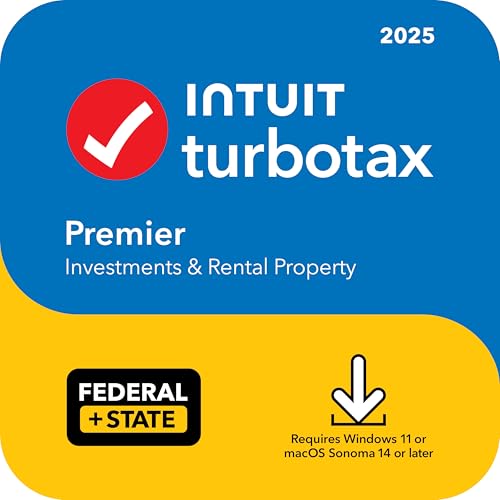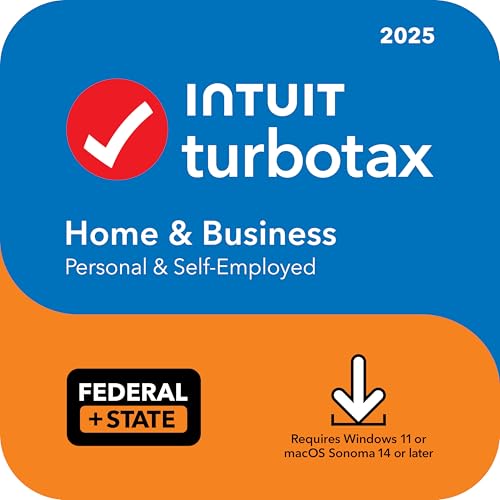Contenu fourni par The Future of Finance is Listening. Tout le contenu du podcast, y compris les épisodes, les graphiques et les descriptions de podcast, est téléchargé et fourni directement par The Future of Finance is Listening ou son partenaire de plateforme de podcast. Si vous pensez que quelqu'un utilise votre œuvre protégée sans votre autorisation, vous pouvez suivre le processus décrit ici https://fr.player.fm/legal.
Player FM - Application Podcast
Mettez-vous hors ligne avec l'application Player FM !
Mettez-vous hors ligne avec l'application Player FM !
Podcasts qui valent la peine d'être écoutés
SPONSORISÉ
T
The Unshakeables

1 Inspiring Creativity & Community: CultureCon 35:06
35:06  Lire Plus Tard
Lire Plus Tard  Lire Plus Tard
Lire Plus Tard  Des listes
Des listes  J'aime
J'aime  Aimé35:06
Aimé35:06
Imani Ellis has always believed community is a superpower. What began as a small gathering in her Harlem apartment grew into The Creative Collective NYC and CultureCon — one of the largest conferences celebrating creators of color. But behind the highlight reels and celebrity speakers, Imani’s journey has been defined by burnout, bold leaps and learning when to pause. In this episode, Ben and Kathleen sit down with Imani and explore what it takes to transform a passion project into a cultural movement. From balancing a demanding career at NBCUniversal with late-night CultureCon planning, to walking away from work at the height of burnout for a self-designed “creative residency” in Paris, Imani shares the realities of leadership, rest and why joy and community must stay at the center of her work. See omnystudio.com/listener for privacy information.…
CFO THOUGHT LEADER
Tout marquer comme (non) lu
Manage series 1039141
Contenu fourni par The Future of Finance is Listening. Tout le contenu du podcast, y compris les épisodes, les graphiques et les descriptions de podcast, est téléchargé et fourni directement par The Future of Finance is Listening ou son partenaire de plateforme de podcast. Si vous pensez que quelqu'un utilise votre œuvre protégée sans votre autorisation, vous pouvez suivre le processus décrit ici https://fr.player.fm/legal.
CFO THOUGHT LEADER is a podcast featuring firsthand accounts of finance leaders who are driving change within their organizations. We share the career journey of our spotlighted CFO guest: What do they struggle with? How do they persevere? What makes them successful CFOs? CFO THOUGHT LEADER is all about inspiring finance professionals to take a leadership leap. We know that by hearing about the successes — (and yes, also the failures) — of others, today’s CFOs can more confidently chart their own leadership paths across the enterprise and take inspired action.
…
continue reading
1132 episodes
Tout marquer comme (non) lu
Manage series 1039141
Contenu fourni par The Future of Finance is Listening. Tout le contenu du podcast, y compris les épisodes, les graphiques et les descriptions de podcast, est téléchargé et fourni directement par The Future of Finance is Listening ou son partenaire de plateforme de podcast. Si vous pensez que quelqu'un utilise votre œuvre protégée sans votre autorisation, vous pouvez suivre le processus décrit ici https://fr.player.fm/legal.
CFO THOUGHT LEADER is a podcast featuring firsthand accounts of finance leaders who are driving change within their organizations. We share the career journey of our spotlighted CFO guest: What do they struggle with? How do they persevere? What makes them successful CFOs? CFO THOUGHT LEADER is all about inspiring finance professionals to take a leadership leap. We know that by hearing about the successes — (and yes, also the failures) — of others, today’s CFOs can more confidently chart their own leadership paths across the enterprise and take inspired action.
…
continue reading
1132 episodes
Tous les épisodes
×1 1142: From Webcomics to Wall Street: Inside a Storytelling Powerhouse | David Lee, COO & CFO, WEBTOON 53:28
53:28  Lire Plus Tard
Lire Plus Tard  Lire Plus Tard
Lire Plus Tard  Des listes
Des listes  J'aime
J'aime  Aimé53:28
Aimé53:28
When David Lee joined PG&E in San Francisco, the company was collapsing under the weight of California’s first energy crisis. “These utility veterans kind of got us into this,” the new CFO told him, handing him an unusual assignment: act as an “anti-CFO.” Lee spent his days testing every forecast and financing plan, proposing contrarian options like a preferred-equity line from KKR. The exercise, he tells us, forced him to “think independently” and learn how to guide a public company in deep trouble. That moment crystallized a pattern in Lee’s career—a willingness to enter complex situations and rethink accepted wisdom. From his start at Leo Burnett Company, where he learned to “walk in the shoes of the consumer,” to his nine-year transformation tour at Del Monte and later Best Buy’s celebrated “Renew Blue” turnaround, he has sought environments that reward original thought over routine expertise. Today, as global COO and CFO of Webtoon, Lee applies the same mindset to a different kind of transformation—the business of storytelling. He tells us the platform connects 24 million creators to 156 million readers each month, growing its English-language audience 19 percent year over year. Yet he draws a bright line around technology’s role: “Human storytellers are the best storytellers.” AI, in his view, should fight piracy and improve discovery, not replace creativity. Across every chapter, from crisis utilities to digital comics, Lee’s philosophy remains constant—progress begins when finance leaders question assumptions and listen long enough to see possibilities others overlook.…
1 1141: The Long Game of Resilient Finance Leadership | Erik Wissig, CFO, SureCo 43:27
43:27  Lire Plus Tard
Lire Plus Tard  Lire Plus Tard
Lire Plus Tard  Des listes
Des listes  J'aime
J'aime  Aimé43:27
Aimé43:27
When Erik Wissig recalls his early years as a founder, one moment still stands out. The team had met its growth goals and earned their bonuses—but the company’s cash flow hadn’t caught up. “You need the cash to make those payments,” he tells us. That hard-won lesson reshaped how Wissig approached finance from that day forward: plan ahead, balance ambition with liquidity, and bring the wider leadership team into that awareness. Before that turning point, Wissig had spent a decade in investment banking, advising hundreds of middle-market companies on transactions. Eventually, the advisor wanted to build. In 2013, he co-founded Hixme to give employers a new way to fund individual health insurance—an idea born from the Affordable Care Act’s reshaping of the market. When regulatory realities slowed progress, Wissig stayed the course. Hixme’s platform and team were acquired by SureCo in 2020, where he now serves as CFO and COO. At SureCo, Wissig’s banking discipline meets an operator’s pragmatism. He focuses on two levers—raising revenue per customer and scaling efficiencies—and on hiring into his weaknesses, surrounding himself with strong CPAs. His leadership style mirrors his philosophy on failure: persistence is progress. “If the game is still being played, then you haven’t failed,” he tells us. Twelve years into his pursuit of the ICHRA model, Wissig remains motivated by one conviction: lasting change in healthcare begins by putting individuals—not institutions—at the center of the system.…
1 1140: The EQ Playbook for Post-Merger Reality | Niels Boon, CFO, Cint 59:10
59:10  Lire Plus Tard
Lire Plus Tard  Lire Plus Tard
Lire Plus Tard  Des listes
Des listes  J'aime
J'aime  Aimé59:10
Aimé59:10
The moment that stayed with him began at a marketplace where sales dashboards showed 40% gross margin—yet finance closed the books at 20% , Boon tells us. The gap, he discovered, lived in the shadows: rebates, discounts, and “free” services that never touched operational metrics. He manually traced economics to the client level and found margins many considered healthy were thin—or nonexistent. One customer representing roughly 30% of revenue delivered 0% gross margin, Boon tells us. That scene explains his broader path. He started in London investment banking “working on deals 24/7,” then spent five years at McKinsey across Europe on corporate finance and strategy. At Zalando he founded Strategic Finance to ready the company for IPO—tightening the P&L and working capital. Hypergrowth taught him that unchecked hiring breeds overlap and data drift, so ownership and reporting must evolve with scale, Boon tells us. He gravitates to complexity. At his current company—public since 2021 and combined with a U.S. competitor bought for “about a billion USD”—systems sprawl and legacy platforms made accuracy difficult while two-thirds of revenue came from the U.S., across 130 countries with people in 14 , Boon tells us. He cut legal entities from 28 to 14 , moved to one ERP, and shortened the monthly close from “15 days” to “five or six days,” Boon tells us. Two efficiency programs, a 120 million refinancing, and a rights issue 60% oversubscribed rebuilt credibility. Back at the marketplace, he installed a pricing director reporting to finance, killed blanket rebates, and tied commissions to net revenue. Within 12 months , margin rose from 20% to 40% , Boon tells us—proof that disciplined economics, not dashboards, drive durable turnarounds.…
1 Bridging Legal & Finance: Closing Contact Risk Gaps - A Suite Voices Miniseries Episode 26:48
26:48  Lire Plus Tard
Lire Plus Tard  Lire Plus Tard
Lire Plus Tard  Des listes
Des listes  J'aime
J'aime  Aimé26:48
Aimé26:48
In this special episode of CFO Thought Leader—the first of three produced in collaboration with The Suite, Shaun Sethna (General Counsel and GM for the L Suite) maps where CFOs and GCs misjudge contract risk and how to collaborate effectively. He spotlights “locked-in” deals that still enable termination via vague clauses or missing notice-and-cure. Start with strategy alignment, then cross-train—mini finance for lawyers, mini legal for CFOs—and empower teams to escalate wisely. He urges adopting AI to summarize agreements, surface obligations, and route risks. Looking ahead, he flags AI agents as SaaS “users,” which could upend seat-based pricing. He closes with an M&A example where mutual fluency let GC and CFO catch material misses. • Align strategy first; contracts follow business intent. • Cross-train teams to spot each other’s risks. • Adopt AI to illuminate obligations and exposure.…
1 1139: The Global Lens of Finance Leadership | Atsushi Kitamura, CFO, Astellas Pharma 21:47
21:47  Lire Plus Tard
Lire Plus Tard  Lire Plus Tard
Lire Plus Tard  Des listes
Des listes  J'aime
J'aime  Aimé21:47
Aimé21:47
When Procter & Gamble asked Atsushi Kitamura to move from finance analysis into running a manufacturing plant, he didn’t hesitate. “They always give me next challenge to stretch me,” he tells us. Managing one of P&G’s large diaper plants in Japan forced him to apply finance in real-time operations—a proving ground that shaped his comfort with change and appetite for transformation. That readiness carried him from consumer goods to logistics, restaurants, and electronics before arriving at Astellas Pharma, where the stakes are now measured in science and strategy. When he joined in 2023, Astellas had just completed a $6 billion acquisition that shifted it from a net-cash to a net-debt position. Hired to “put financial disciplines and make the balance sheet stronger,” Kitamura tells us he views the moment as a “transformative timing” for the company. Loss of exclusivity on a prostate-cancer drug representing “more than 40 percent of our revenues” demands reinvention. His three-part playbook focuses on growing core brands, investing in science creation, and executing what he calls “sustainable margin transformations.” The approach has begun to pay off—“top line 19 percent, profit 40 percent,” he tells us—signaling a finance organization in renewal. Now he’s turning to technology to sustain that momentum. Describing the shift from RPA to “agentic AI,” Kitamura explains, “I just ask agent AI to do that booking.” He calls it a tipping point that will “change significantly the way how we work.” Still, he adds, leadership begins with listening. “Don’t pretend I know everything,” he tells us. For Kitamura, finance transformation starts not with machines or metrics—but with humility.…
1 1138: Stablecoins, Real Utility, and the Next Curve | Michael Levine, CFO, Fireblocks 54:45
54:45  Lire Plus Tard
Lire Plus Tard  Lire Plus Tard
Lire Plus Tard  Des listes
Des listes  J'aime
J'aime  Aimé54:45
Aimé54:45
On a quiet afternoon in Punta Cana, Michael Levine sat alone on a stretch of white sand. The turquoise water and silence offered the perfect scene for rest—until he realized what was missing. “I didn’t have my phone and I didn’t have my laptop,” he tells us. “That’s what makes me happy… I love doing work from the beach.” It was there, after stepping down as Payoneer’s CFO, that Levine accepted a truth about himself: he wasn’t ready to retire. Levine had spent 11 and a half years helping Payoneer scale from about 100 employees to 3,000 and from $150 million to more than $80 billion in annual volume. He guided the company from private to public in June 2021 and from unregulated to regulated operations. When he left in 2023, he planned a pause but instead found himself drawn to a new frontier. Calls from crypto companies arrived during what he calls the “crypto winter.” Although he had once avoided digital assets entirely, he became fascinated by “decentralized finance,” “smart contracts,” and the tokenization of real-world assets. A meeting arranged by Spencer Stuart with the CEO of Fireblocks solidified his next move. “When you don’t know which horse to pick in a race,” Levine tells us, “buy the racetrack.” Fireblocks, he explains, is the infrastructure that secures digital assets for enterprises through self-custody and cyber-grade protection. For Levine, it was a chance to apply a career’s worth of scaling and governance experience to a technology poised to define the next decade of finance.…
1 1137: Scaling Finance Across Borders | Amy Foo, CFO, Ignition 57:16
57:16  Lire Plus Tard
Lire Plus Tard  Lire Plus Tard
Lire Plus Tard  Des listes
Des listes  J'aime
J'aime  Aimé57:16
Aimé57:16
She starts with tape from the field, not the spreadsheet. Listening to enterprise sales calls, Amy Foo heard customers whose usage rose and fell with seasons. Fixed per-seat pricing “wasn’t quite hitting the mark,” she tells us, so she piloted a pooled-seat model that flexed monthly within an annual commitment—turning smaller clips into “one to five million” deals and lifting revenue “six to seven times per customer,” she tells us. That instinct—to meet the customer where they are—threads through her journey. Early at Zendesk, she was “employee number one in the region,” handling FP&A, accounting, taxes, and team-building as the business scaled, she tells us. Trust won her a dual path: SVP of Global Finance Operations (deal desk, billings, shared services) and APAC managing director, aligning teams across seven countries, she tells us. Mentors’ unvarnished feedback helped her shed imposter syndrome and lead without geographic ceilings. Today at Ignition, she reduces complexity to a few levers—ARR, payments volume, cash flow—and aligns accordingly, she tells us. She monitors top-of-funnel quality and pipeline coverage daily to steer marketing spend and sales motions, she tells us. On pricing, she watches what customers pay and repackages value by segment, she tells us. She leads with customer insight, she tells us. As for AI, she calls it “not a magic pill,” advocating first for AI built into existing vendors, then new tools where capabilities are missing, she tells us. Finance, after all, is “about narrative and conviction”—numbers that move people to act, she tells us.…
1 1136: From Projects to Playbooks: Making Transformation Stick | Joe Custer, CFO, Intrado 59:52
59:52  Lire Plus Tard
Lire Plus Tard  Lire Plus Tard
Lire Plus Tard  Des listes
Des listes  J'aime
J'aime  Aimé59:52
Aimé59:52
When Joe Custer describes Intrado’s purpose, he begins with a story that traces back almost half a century. The company, he tells us, was born inside the Boulder County Sheriff’s Department when someone asked whether there might be a better way to connect a caller in distress with a first responder. “Turns out they were on to something,” he adds. Today that idea has scaled into a mission-critical network touching roughly 90 percent of all 911 requests for assistance. Custer explains that Intrado “has to operate like a utility … we cannot fail.” Reliability is not a metric to be met but a promise to the public, one he refers to as “public safety grade.” Behind that standard lies a web of acquisitions—eight to ten over time—that were never fully integrated. That challenge, he says, became opportunity when Stonepeak Infrastructure Partners carved Intrado out of West Corporation and began investing to harden its network and modernize its operations. As both CFO and SVP of Operations, Custer leads a transformation aimed at restoring Intrado’s position as the thought leader in emergency communications. The work goes beyond financial engineering; it’s about aligning systems, culture, and purpose around a single mission: saving lives. “We want to be the most trusted authority in public safety,” Custer tells us, describing a workforce “deeply committed to the cause.” In his view, reliability, investment, and mission are inseparable—the essential framework for Intrado’s next 50 years.…
1 1135: Where Strategy Meets Finance in the Ad-Tech Revolution | Clayton Kossl, CFO, Basis Technologies 42:24
42:24  Lire Plus Tard
Lire Plus Tard  Lire Plus Tard
Lire Plus Tard  Des listes
Des listes  J'aime
J'aime  Aimé42:24
Aimé42:24
On his first day in investment banking, Clayton Kossl was “thrown right into the cauldron.” With few senior professionals in the small aerospace and defense group, junior bankers like him were expected to face company owners directly. “You had to understand the businesses inside and out,” he tells us. The experience forced him to blend analytical depth with the interpersonal agility needed to earn trust in every room. That mix of skills—numbers and nuance—became a through line in Kossl’s career. At ZocDoc, he joined a Strategic Finance team that partnered closely with the CEO and CFO, taking ownership of decisions that rippled across the fast-growing health-tech firm. The role taught him that financial modeling and relationship-building could coexist—and that influence often came from understanding how leaders think, not just how spreadsheets add up. Later, when Kossl joined Paintzen as one of roughly a dozen employees, those lessons proved vital. He rebuilt systems from scratch, partnered daily with the CEO and COO, and touched nearly every function of the business. “Someone had to do it,” he recalls. His ability to translate operational chaos into financial clarity helped guide Paintzen through its expansion and eventual sale to PPG Industries. Across these chapters, Kossl’s story reveals a consistent pattern: using strategy to tell better stories. Whether advising founders or steering finance in ad-tech today, he views storytelling not as spin, but as structure—the way finance can make complexity understandable and transformation achievable.…
1 1134: When Finance Becomes a Force for Influence | Chris Sands, CFO, InvoiceCloud 37:11
37:11  Lire Plus Tard
Lire Plus Tard  Lire Plus Tard
Lire Plus Tard  Des listes
Des listes  J'aime
J'aime  Aimé37:11
Aimé37:11
“InvoiceCloud is not just payments,” Chris Sands tells us. Sitting inside the company’s finance organization, he sees a platform built to change habits—helping businesses shift customers from paper invoices and mailed checks to fully digital transactions. The success metric, he adds, is simple: “Do more of their customers stop receiving paper invoices, stop mailing in checks, and do both of those things digitally?” That clear yardstick reflects how Sands thinks about growth. He describes a foundation rooted in existing customers even as the broader economy accelerates toward digital payment adoption. Utilities and insurers remain core markets, yet new verticals, such as consumer finance, beckon. Each expansion, he notes, must rest on data that confirms user behavior is truly changing. Inside finance, Sands has built what he calls a Strategic Finance function to mirror that discipline. The group handles special projects and, increasingly, AI initiatives—efforts he says once fell entirely within FP&A. Now they stand on their own “leg of the stool,” amplifying how finance supports innovation. That mindset extends beyond the department. Sands helped stand up an AI Ops team—an internal SWAT group that guides employees exploring AI tools. Instead of experimenting in isolation, staff can bring use cases to the team for help. For Sands, finance’s role is to stay analytical amid the excitement: “We can add more value … by helping the rest of the org with [AI] and using our finance skill set to understand where the best opportunities to create business value exist.”…
1 AI's Early Returns - A Planning Aces Episode 33:51
33:51  Lire Plus Tard
Lire Plus Tard  Lire Plus Tard
Lire Plus Tard  Des listes
Des listes  J'aime
J'aime  Aimé33:51
Aimé33:51
In this episode of Planning Aces , host Jack Sweeney and resident thought leader Brett Knowles explore how finance leaders are approaching AI’s early returns —balancing efficiency, experimentation, and human judgment. CFO Craig Foster of Pax8 discusses how AI enablement is driving measurable productivity gains. CFO David Obstler of Datadog reflects on finding ROI amid rapid innovation and market demand. And CFO Ben Gammell of Brex shares why forecasting still requires human intuition despite data-driven progress. Together, their insights reveal a spectrum of FP&A strategies defining the modern CFO’s mindset toward AI adoption and business transformation. Brett Knowles’ Key Takeaways Brett Knowles observes that finance leaders are positioning themselves along a broad continuum—from bold experimentation to cautious skepticism—when it comes to AI in planning. He notes a shift in tone: CFOs are now openly discussing productivity gains and cost efficiency rather than avoiding them. Knowles cautions against overreliance on ROI metrics, emphasizing instead disciplined cost management, pragmatic experimentation, and the evolving role of finance in navigating technology-driven transformation.…
1 1133: Finance That Explains (and Scales) the Why | Kimberlee Duval, CFO, Cymbiotika 1:02:54
1:02:54  Lire Plus Tard
Lire Plus Tard  Lire Plus Tard
Lire Plus Tard  Des listes
Des listes  J'aime
J'aime  Aimé1:02:54
Aimé1:02:54
When Kimberlee Duval arrived at Cymbiotika, the wellness company was preparing a leap few bootstrapped brands attempt—moving from direct-to-consumer to retail shelves. “Our two owners, Charlene and Shahab, have done everything direct,” she tells us. “They wanted to build an organization for the long term.” That resolve led the company to take on debt rather than private-equity money to fund its Sprouts launch in 2024. The risk paid off: Sprouts highlighted Cymbiotika’s success in its quarterly earnings release, proof that intentional growth can outperform speed. Now, with products heading to 1,988 Target stores, Duval’s finance team is focused on scaling without losing clarity. “We restructured the finance function to align with that growth strategy,” she tells us, pointing to centralized operations in NetSuite, expanded FP&A and cost accounting capabilities, and the creation of clear SOPs. Technology, she believes, is the enabler that keeps teams lean and insights sharp. “There’s no reason to segregate between the groups,” she explains, describing her cross-channel approach to e-commerce and retail finance. AI tools and automated workflows now handle much of the transactional load, freeing her people to focus on analysis and collaboration. At the heart of her leadership philosophy is unity. “We’re a team … with a common purpose and a common goal,” Duval tells us. That ethos—pairing disciplined systems with shared intent—continues to shape Cymbiotika’s transformation from a digital wellness brand into a multichannel movement for intentional living.…
1 1132: Infrastructure First: Where AI Actually Adds Up | Steve Sutter, CFO, Celigo 49:41
49:41  Lire Plus Tard
Lire Plus Tard  Lire Plus Tard
Lire Plus Tard  Des listes
Des listes  J'aime
J'aime  Aimé49:41
Aimé49:41
When Steve Sutter joined Celigo five years ago, he stepped into a company positioned not as another SaaS app but as what he calls “the infrastructure, the piping, the plumbing” of business automation. Celigo, he tells us, moves data between systems like Salesforce, NetSuite, and Snowflake so companies can “create very sophisticated business processes” without the friction of disconnected silos. For Sutter, the real work of finance begins behind that plumbing. “As CFO, you have to build a sustainable business model,” he tells us, one rooted in clear unit economics—how each dollar of new recurring revenue is earned and what it costs to deliver value. That analytical discipline, he explains, gives finance a vantage point “no one else has,” allowing it to balance engineering ambition with go-to-market execution. Working inside a privately held, fast-growth environment, Sutter views resource allocation as both art and accountability. Sometimes, he says, companies must “invest in sales and marketing at an excessive rate” to gain traction—but the test is whether the model still makes mathematical sense. He partners closely with the CRO and CMO to watch metrics like the quota-to-OTE ratio and pipeline efficiency, adjusting as conditions change. Even at scale, Sutter keeps a simple mantra: acknowledge failure quickly. “As soon as you’ve acknowledged failure,” he tells us, “you can move on to something that will likely be successful.” It’s a principle that keeps Celigo’s growth disciplined—and its automation ambitions grounded in financial logic.…
1 1131: Building an AI-Ready Finance Engine | Beth Gaspich, CFO, NICE 46:51
46:51  Lire Plus Tard
Lire Plus Tard  Lire Plus Tard
Lire Plus Tard  Des listes
Des listes  J'aime
J'aime  Aimé46:51
Aimé46:51
In 2008, Beth Gaspich stood on the floor of the New York Stock Exchange, ringing the bell as RiskMetrics went public. What made the moment extraordinary was its timing—amid one of the most volatile markets in decades. The IPO decision, she tells us, came “down to the wire.” After months of preparing the S-1, long roadshows, and weekend work with auditors, leadership had to choose: delay indefinitely or seize a fleeting opening. They chose action, and the listing became a defining milestone in her career. That experience shaped her conviction that preparation and clear communication are indispensable when markets are uncertain. It also foreshadowed the way she would later lead NICE through its own transformation. When she became CFO in 2016, NICE was largely an on-premise software company with roughly $1 billion in revenue. Today, she tells us, the firm is approaching $3 billion, with $2.2 billion in cloud revenue. “We don’t put boxes around people,” she notes, describing a culture where finance leaders are expected to help drive strategy, not just report results. Her approach to AI investment echoes that belief. She explains that NICE’s AI and self-service ARR reached $238 million, growing 42% year-over-year. Rather than measure ROI only through headcount reduction, she emphasizes redeploying people to more strategic work. Internally, AI “champions” in each function track outcomes with KPIs. From ringing the NYSE bell to scaling a global AI platform, Gaspich’s journey illustrates how finance leaders can balance precision with boldness when transformation is on the line.…
1 1130: Building Resilient Finance in Uncertain Times | David Obstler, CFO, Datadog 46:26
46:26  Lire Plus Tard
Lire Plus Tard  Lire Plus Tard
Lire Plus Tard  Des listes
Des listes  J'aime
J'aime  Aimé46:26
Aimé46:26
When David Obstler joined Datadog in 2018, the company’s co-founders had already built momentum with a product that observed modern cloud workloads. What struck Obstler was the alignment with a powerful long-term trend—the shift from legacy, on-premise systems to modern cloud applications. “It was a product that had a lot of product market fit in a really strong growing market,” he tells us. From that foundation, Datadog scaled rapidly. Today, the platform serves more than 3,100 customers worldwide, including Samsung, Nasdaq, Shell, Autodesk, and Toyota. The company recently entered the S&P 500 after reporting more than $820 million in second-quarter revenue—a 28% year-over-year increase—alongside $200 million in free cash flow, Obstler tells us. The CFO attributes the growth to Datadog’s unwavering commitment to product-led innovation. The company began in infrastructure monitoring and quickly expanded into logs, application monitoring, and security. “The company invests R&D at very high and consistent levels to continue to maintain and grow the platform,” Obstler tells us. His own role centers on scaling the infrastructure needed to support expansion. That includes building global go-to-market operations and strengthening his team across financial planning, predictability, and business operations. “We’ve been investing behind this growth opportunity and doing it in a strong, prioritized way,” he tells us. With new investments in AI, Datadog is preparing for its next chapter. For Obstler, disciplined prioritization and product-driven growth remain at the heart of how finance can fuel scale.…
Bienvenue sur Lecteur FM!
Lecteur FM recherche sur Internet des podcasts de haute qualité que vous pourrez apprécier dès maintenant. C'est la meilleure application de podcast et fonctionne sur Android, iPhone et le Web. Inscrivez-vous pour synchroniser les abonnements sur tous les appareils.
























